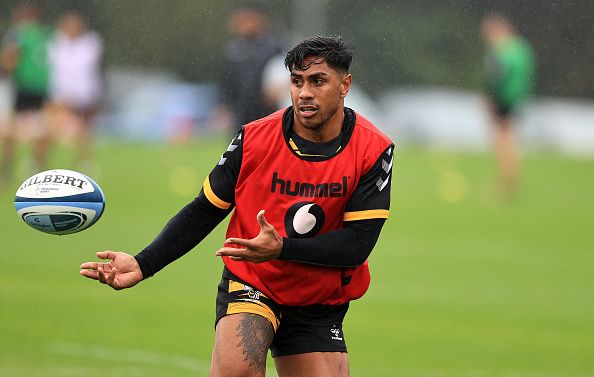"It will provide transformational opportunities to players with dual backgrounds."
World Rugby has approved and eligibility change that will transform the prospects of many nations over the coming years.
From January 1st 2002, a player can transfer once from one union to another as long as they have
'a close and credible link to that union via birth-right.'
After an extensive period of 'discussion and collaboration', the World Rugby Council has approved an amendment to the sport’s regulations governing national team representation that will now permit an international player to transfer.
So, from the start of 2022, in order to transfer from one union to another under
the revised Regulation 8 (eligibility), a player will need to achieve the below criteria:
- The player must stand-down from international rugby for 36 months
- The player must either be born in the country to which they wish to transfer or have a parent or grandparent born in that country
- Under the revised Regulation 8 criteria, a player may only change union once and each case will be subject to approval by the World Rugby Regulations Committee to preserve integrity
After 1 January 2022, any player who meets the above criteria can apply immediately for a transfer.
Transfers are currently permitted so that Sevens players can represent a different nation [one that they have a right to play for] at the Olympics. The amendment now means they can do so in all Sevens and 15s competitions.
To pick a random example - this now means that a New Zealander that has represented Ireland could stand down from selection consideration for three years and then play for the All Blacks after a three-year period.
It is hoped that the amendment will benefit second and third tier rugby nations. For example, Wasps' Malakai Fekitoa is Tongan but played 24 times for New Zealand due to familial connections. He played 24 times for the All Blacks but has not played for them since 2017. Fekitoa has been allowed to play for Tonga Sevens but could, next January, apply to play Test rugby for Tonga.
[caption id="attachment_241851" align="aligncenter" width="594"]
 Malakai Fekitoa passes the ball during a Wasps training session. (Photo by David Rogers/Getty Images)
Malakai Fekitoa passes the ball during a Wasps training session. (Photo by David Rogers/Getty Images)[/caption]
World Rugby chairman addresses eligibility amendment
A past example of where this amendment could have proved beneficial is looking at Isa Nacewa. He made one Test appearance for Fiji at the 2003 World Cup and never played for them again, but was barred from playing for New Zealand.
World Rugby chairman Bill Beaumont said, "We have listened to our membership and players and sought to update the regulation recognising the modern professional rugby environment without compromising the integrity of the international game.
"Any player who wishes to transfer will need to have a close and credible link to their new union, namely birth right or parent or grandparent birth right while meeting strong criteria, including a 36-month stand down period.
"We believe that this is the fairest way to implement progressive change that puts players first while also having the potential to support a growing, increasingly competitive international men’s and women’s game."
International Rugby Players chief executive, Omar Hassanein commented, "Many players across the world will now benefit from the chance to represent the country of their or their ancestors' birth, serving as a real boost to the competitiveness of emerging nations, which in turn, will benefit the game as a whole.”



 Malakai Fekitoa passes the ball during a Wasps training session. (Photo by David Rogers/Getty Images)[/caption]
Malakai Fekitoa passes the ball during a Wasps training session. (Photo by David Rogers/Getty Images)[/caption]